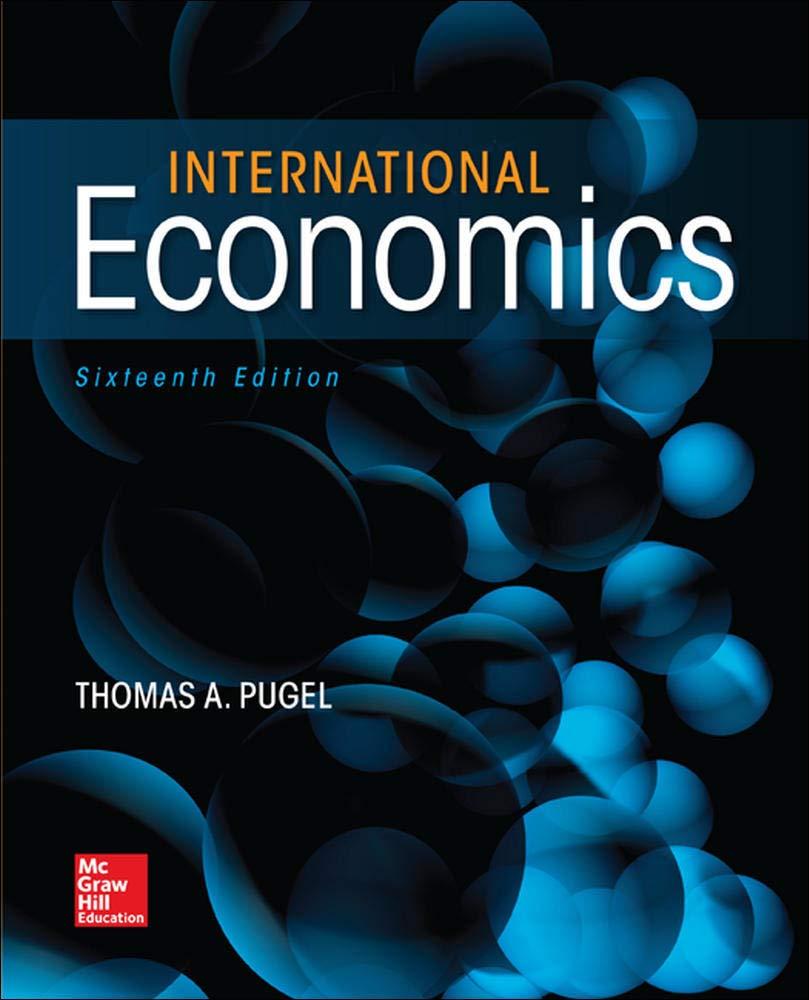The Eurocurrency market is a worldwide wholesale money market of enormous scope, one beyond the easy control
Question:
The Eurocurrency market is a worldwide wholesale money market of enormous scope, one beyond the easy control of any government. The traditional definition of a Eurocurrency deposit is a bank deposit denominated in a currency different from the currency of the country where the bank is located. However, since 1981, the equivalent of Eurodollar deposits can be booked in the International Banking Facility of a U.S. bank. The better definition of a Eurocurrency deposit is a bank deposit that is not subject to the usual government regulations imposed by the country of the currency in which the deposit is denominated. Eurodollar deposits are dollar deposits that are not subject to the same regulations imposed by the U.S. banking authorities on regular dollar deposits. In fact, the prefix Euro has now come to be used in international finance to refer not to geographic location but rather to financial instruments or activities that are subject to little or no government regulation.
Eurobonds are bonds that are issued outside of the usual regulations imposed by the country in whose currency the bond is denominated.
Eurocurrency deposits are large time deposits.
In 2013, banks in various areas of the world, including Europe, North America, Asia, and the Caribbean, had Eurocurrency deposits totaling about $19 trillion. About three-fifths of these deposits are Eurodollar deposits. About onefifth are euro Eurodeposits! (Yes, we have some confusing terminology—the euro as a currency is different from Euro as a prefix.) Eurosterling and Euroyen deposits are sizable too.
Eurocurrency deposits seem to have begun in Europe in the late 1950s. Several reasons explain the development and rapid growth of Eurocurrencies. European firms active in international trade began to hold dollars temporarily in their local banks that were willing to accept dollar deposits. The Soviet Union began to deposit U.S. dollars in European banks to keep the dollars out of the direct reach of the U.S. government during the Cold War. In the 1970s, Arab countries earning dollars on oil exports also feared possible restrictions if they placed their dollars on deposit in the United States, and turned to Eurodollar deposits. Most important to the long-run development of the market, banks involved in taking these deposits (and making loans with the funds)
found that they could avoid various regulations.
One type of regulation that can be avoided is any restriction of international flows of moneys.
Thus, in the late 1950s, the British government restricted the ability of British banks to lend pounds to foreigners but permitted them to lend dollars to foreigners. In the 1960s, the U.S. government attempted to restrict capital outflows.
Borrowers turned to the Eurodollar market to obtain dollars that they could no longer borrow from the United States.
Other regulations that can be avoided in the Eurocurrency market are the standard regulations imposed on domestic banking activities.
Countries that wish to attract Eurocurrency deposit activity generally do not impose reserve requirements on these deposits, or deposit insurance premiums, and they lighten or eliminate other regulations. Freedom from the burdens and extra costs of various regulations permits banks to offer somewhat higher interest rates on Eurocurrency deposits than are available on regular domestic bank deposits and perhaps also to charge somewhat lower interest rates on loans funded by these deposits. The lack of regulation implies that Eurocurrency deposit claims are somewhat riskier for depositors. They face somewhat more uncertainty about whether their claims will be honored if the bank should fail.
Eurocurrency deposits and loans are generally credited with enhancing the efficiency of international financial markets. Eurocurrencies offer large corporations, financial institutions, and governments another alternative as to where they can invest their funds to earn interest or where they can borrow to obtain low-cost financing.
Some of the efficiencies here come from the lack of burdens and costs imposed by government regulations, while others come from additional and fierce competition among banks from many countries for the same business.
DISCUSSION QUESTION If the Soviet Union and Arab oil-exporting countries had not been fearful of possible U.S government actions, would the Eurocurrency market still have developed into a large market?
Step by Step Answer:






